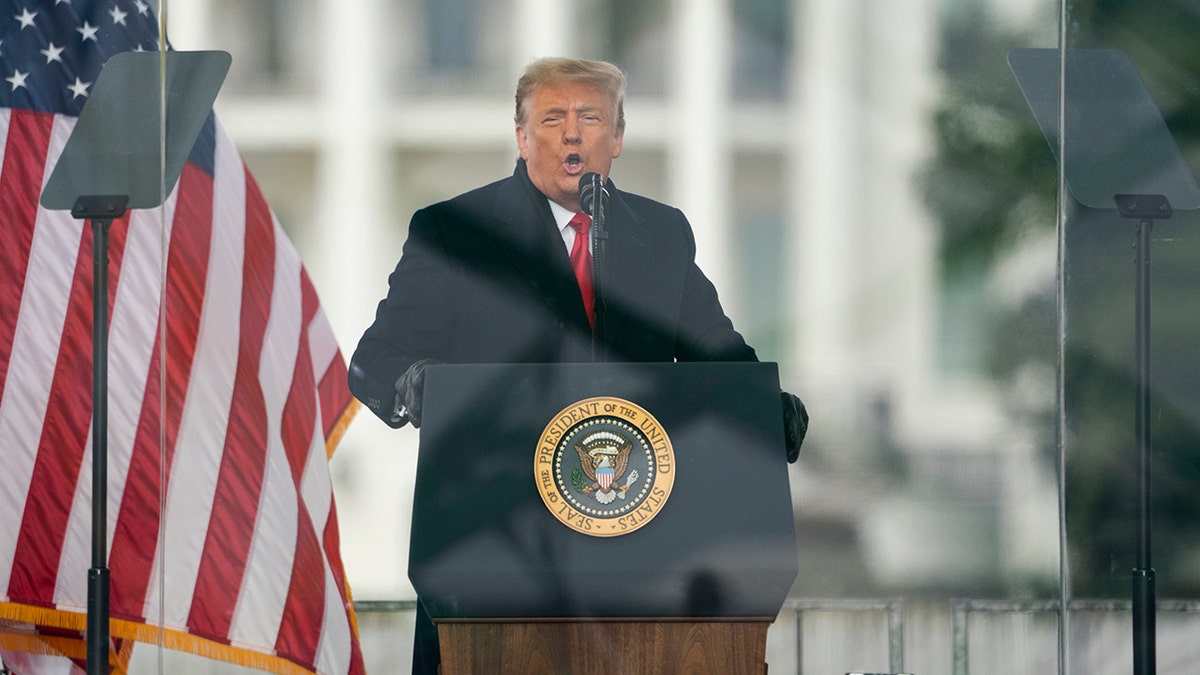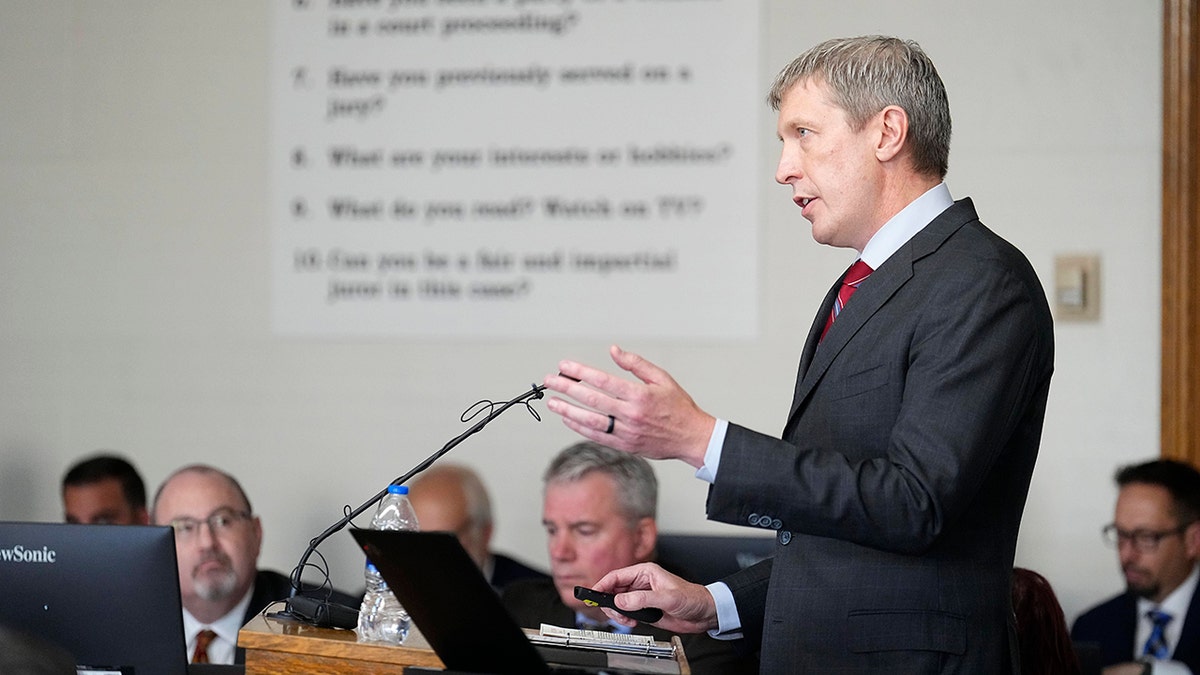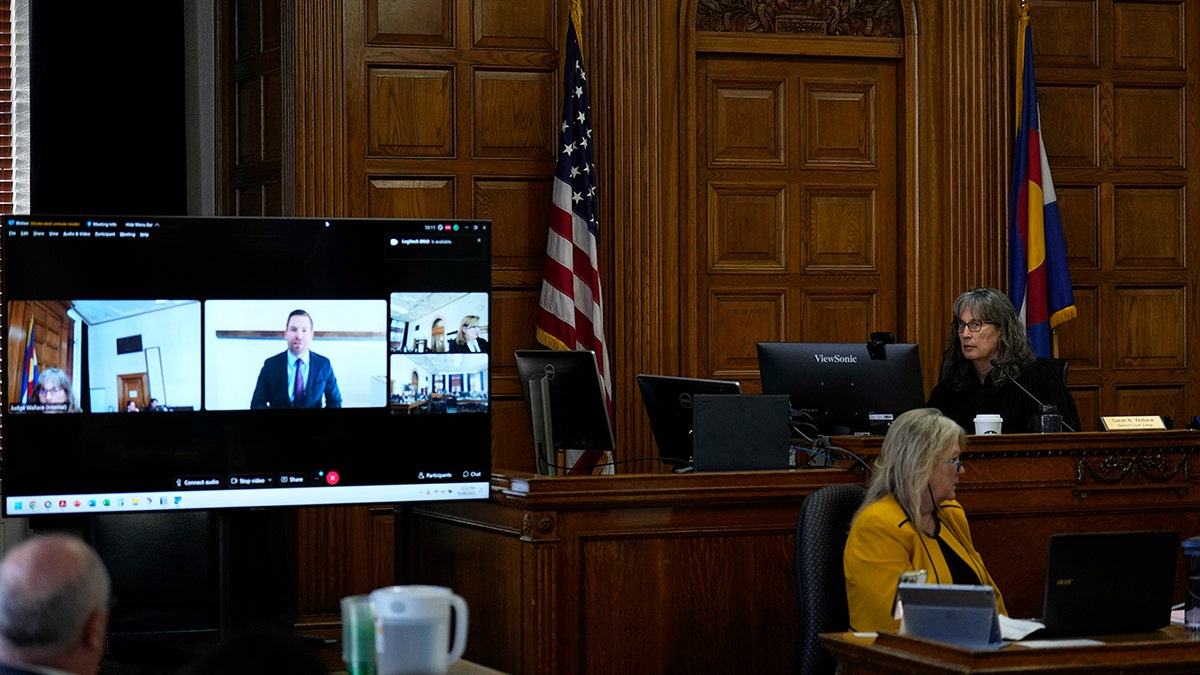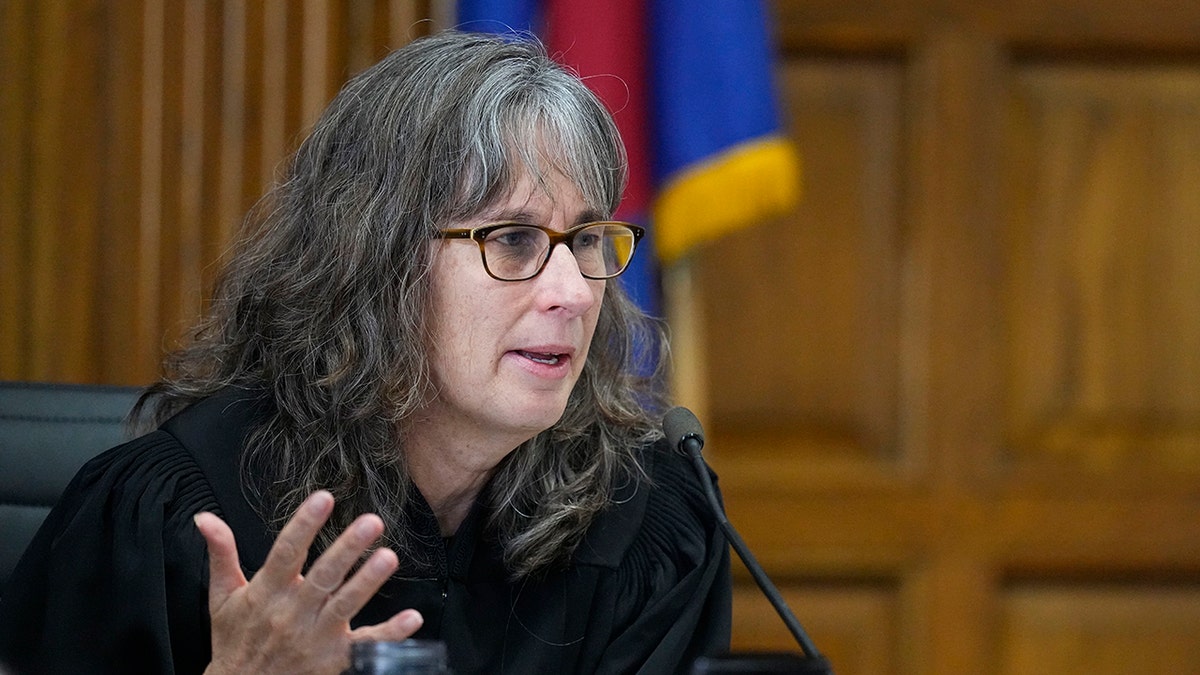Trump was the most pro-Jewish president: Matt Keelen
Republican strategist Matt Keelen and Democratic Strategist Kevin Walling discuss 2024 hopefuls speaking at the Republican Jewish summit and whether Rep. Dean Phillips, D-Minn., has a chance against President Biden.
Cases in Colorado and Minnesota are seeking to disqualify former President Donald Trump from winning the White House again. The hearing could break new ground in constitutional law and could easily end up before the U.S. Supreme Court.
Attorneys started their arguments on Monday, claiming Trump’s alleged role in the riot at the U.S. Capitol on Jan. 6, 2021, violated the Constitution's insurrection clause and thus prevents him from being able to seek office. The hearing in Colorado state court on Monday marked the first of two lawsuits against Trump as the Minnesota Supreme Court will hear oral arguments in a similar case on Thursday.
Attorney Eric Olson argued Trump’s violent rhetoric before and on Jan. 6 encouraged the crowd of his supporters and others to storm the Capitol, where they came within "40 feet" of then-Vice President Mike Pence. He said Trump "summoned and organized the mob. We are here because Trump claims, after all that, that he has the right to be president again. But our Constitution, the shared charter of our nation, says he cannot do so."
Trump’s legal team and presidential campaign have pushed back on the validity of the lawsuit, saying it is just another attempt by Democrats to derail his presidential bid as he leads all Republicans in the presidential primary.
KAMALA HARRIS GUARANTEES RE-ELECTION IN 2024 AFTER ASKED WHY BIDEN'S NOT '30 POINTS AHEAD' OF TRUMP

Court arguments have begun in the efforts to use an insurrection clause in the U.S. Constitution to bar former President Donald Trump from running for office for a third time. (AP Photo/Evan Vucci)
The cases hinge on a Civil War-era provision – Section Three of the 14th Amendment – that prohibits those who swore an oath to uphold the Constitution and then "engaged in insurrection" against it from holding higher office.
The case will pivot on whether the Jan. 6 attack meets the meaning of "insurrection" in the 14th Amendment and whether Trump's actions meet the definition of "engaging." Also, and perhaps most importantly, whether the rarely used provision was ever meant to apply to the presidency.
Ultimately, either the Colorado or Minnesota case could land in the U.S. Supreme Court, which has never ruled on the provision in question.

Attorney Eric Olson delivers opening remarks for a lawsuit that seeks to keep former President Donald Trump off the state ballot in a Denver court on Monday, Oct. 30. (AP Photo/Jack Dempsey)
Trump’s lawyers contend the former president was simply exercising his free speech rights to warn about election results he did not believe were legitimate. They noted cases where the congressional authors of Section Three declined to use it more than a century ago against people who only rhetorically backed the confederacy.
POLL SHOWS TRUMP AND BIDEN NECK AND NECK IN 2024 ELECTION, BUT INDEPENDENT BIDS COULD CHANGE RACE
His lawyers said none of the issues are simple in a provision of the Constitution that hasn’t been used in 150 years. In court filings, they said the insurrection clause was never meant to apply to the office of president, which is not mentioned in the text, unlike "Senator or Representative in Congress" and "elector of President and Vice President."
"This is a legal Hail Mary by the Democrats," said Mike Davis, an attorney who appeared with representatives of the Trump campaign outside court before the trial began. "This case is going to fail."
Scott Gessler, an attorney representing Trump, called the lawsuit "anti-democratic."

U.S. Rep Eric Swalwell, D-Calif, remotely testifies as part of a lawsuit to keep former President Donald Trump off the state ballot in Colorado. (AP Photo/Jack Dempsey)
Gessler, also a former Colorado secretary of state, noted there is also an informal principle in election law known as "the rule of democracy," which traditionally encourages judiciaries to "err on the side of letting people vote" whenever there is an ambiguity.
The Colorado testimony started by examining the ferocity of the Jan. 6 riot, where many people were injured and one protester was shot and killed.
Testimonies came from some witnesses who were in Washington on that day. The plaintiffs' lawyers also played several videos showing the day's violence and showed various Trump tweets and statements about the 2020 presidential election results.

Lawyers for former President Trump wanted Judge Sarah B. Wallace to recuse herself from his case in Colorado after a $100 donation to the Colorado Turnout Project, which aims to "prevent violent insurrections," came to light. (AP Photo/Jack Dempsey)
Before the hearing on the lawsuit began, Trump's lawyers filed a motion to have the judge recuse herself because she had donated in the past to a liberal group in the state. She said no.
Judge Sarah B. Wallace said she would not recuse herself over a $100 donation she made in October 2022 to the Colorado Turnout Project, a group whose website says it was formed to "prevent violent insurrections" such as the Jan. 6 attack.
She was appointed to the bench in August of that year by Gov. Jared Polis, a Democrat.
CLICK HERE TO GET THE FOX NEWS APP
Wallace said she didn’t recall the donation and subsequently denied the motion.
Recent primary polls have Trump leading the Republican primary, with Nikki Haley and Gov. Ron DeSantis tied for second in Iowa.
The Associated Press contributed to this report.





















